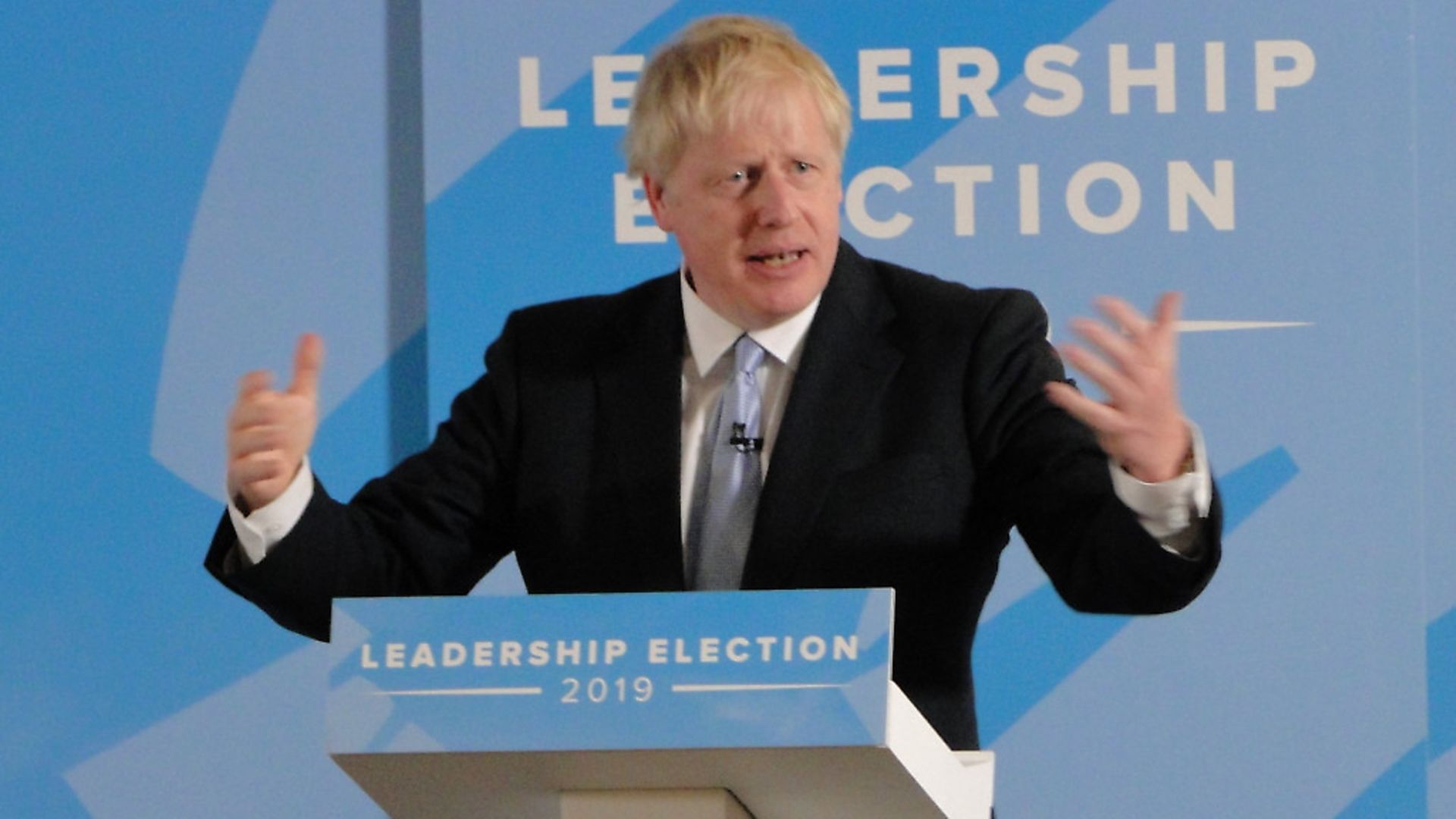
A WHITEHALL review into Boris Johnson’s plans to axe as many as 91,000 civil servants over three years has led the Treasury to “go cold” after the full upfront cost emerged.
In May, the Prime Minister announced he wanted to reduce the number of civil servants by 20% and in June said he could “prune” back the civil service “without harming” frontline services.
However, government insiders said a review by Steve Barclay, the former chief of staff, had found otherwise.
It found the plans would require major cuts to public services and cost at least £1 billion in redundancy payments.
Despite this, foreign secretary and prime ministerial candidate Liz Truss is backing proposals to cut civil service costs and has vowed to wage “a war on Whitehall waste”.
According to the Financial Times, one Whitehall insider who has worked on the plans said it had become clear that Johnson had made his announcement – initially greeted with enthusiasm by some sectors of the Conservative Party – without fully thinking through the implications.
“You can only deliver 91,000 cuts by actual cuts to major frontline services,” said the insider.
They added: “There’s no way you can get to that number through efficiency savings or reductions in HQ staff.”
The Government currently employs 475,000 civil servants compared with a low point of 384,000 in 2016.
The biggest growth in officials has come at the Ministry of Justice, the Home Office and the Department of Work and Pensions.
Another insider said the proposals would involve “serious cuts” to staff at HM Revenue and Customs, Border Force and prisons.
“And you couldn’t protect jobs outside London,” added the insider.
Truss’ campaign team recently endorsed the cuts after being forced into a U-turn on proposals to introduce regional pay scales in the public sector to save an estimated £8.8 billion a year.
Prior to the U-turn, the plans included slashing the pay of doctors, teachers and nurses.
Former Northern Ireland secretary Brandon Lewis, who is backing Truss for prime minister, told the BBC the ditched policy on regional pay boards was part of a “wider package around dealing with waste in Whitehall”.
The demands on Whitehall have increased in recent years, partly because of the coronavirus pandemic but also because of government policies including recruiting 20,000 police officers.
The UK’s departure from the EU has also meant an expansion of the Department of International Trade to negotiate trade deals, while Britain’s post-Brexit immigration regime has increased demands on immigration and Border Force staff.
The Cabinet Office said: “As people across the country are facing huge living costs, the public rightly expect their government to lead by example and to be run as efficiently as possible.”
It added it was too early to speculate on how the reductions in headcount would be made, but that a variety of options included not filling vacancies as civil servants move to the private sector or retire.
It also confirmed that consultations with trade unions were continuing.







